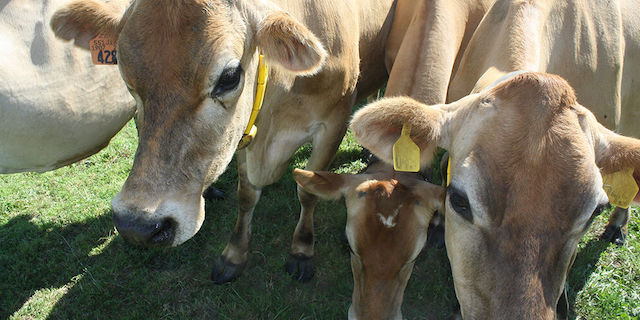ONLINE Dan Fulleton Farm Equipment Retirement Auction
THIS WILL BE AN ONLINE AUCTION Visit bakerauction.com for full sale list and information Auction Soft Close: Mon., March 3rd, 2025 @ 12:00pm MT Location: 3550 Fulleton Rd. Vale, OR […]
Published 9:19 am Wednesday, January 29, 2025

OLYMPIA — House Democrats introduced a bill to require Washington feedlots and dairies report methane emissions, fueling speculation the legislation will set the stage for levying a carbon tax on agriculture.
House Bill 1630 was referred Jan. 27 to the House Environment and Energy Committee. The bill calls methane from cattle a potent greenhouse gas contributing to the devastating impacts of climate change.
The bill doesn’t call for taxing methane from cattle, but would require annual reports to the Department of Ecology. Ecology already estimates livestock emissions. The bill would match emissions to specific operations.
The bill’s prime sponsor, freshman Rep. Lisa Parshley, D-Olympia, said she wants the state to have the information to set policy. She said she wasn’t committed to any policy, including whether to tax cattle emissions.
“I don’t know about that. That’s not what the bill is,” said Parshley, a veterinarian. “I think to begin with we have to make sure we have an accounting.”
Methane from ruminant animals such as cattle, sheep and goats account for 3% of Washington state’s carbon output, according to Ecology. Methane from manure contributes another 1.6%.
House Republicans viewed the bill as a forerunner to taxing agricultural greenhouse emissions. Washington’s cap-and-trade program taxes fossil fuels, but not methane from cattle.
Rep. Joe Schmick, R-Colfax, said the legislation could eventually steer feedlots and dairies into the cap-and-trade program, forcing them to bid for carbon allowances.
“It will raise food prices,” he said. “We’re talking about food production and having protein for a healthy diet.”
Parshley introduced the bill with seven co-sponsors. Ecology spokesman Andrew Wineke said in an email the agency did not request the legislation.
Feedlots already submit information for Ecology to calculate emissions, Washington Cattle Feeders Association executive director Jack Field said.
“The bill came out of left field without any consultation with the industry,” he said. “At the end of the day, it’s going to be a taxing mechanism.”
Washington State Dairy Federation policy director Jay Gordon said he will meet with Parshley to better understand the bill’s purpose.
“Our message to legislators is we know cows emit methane, not a big surprise,” he said. Taxing methane, he said, “would be just one more reason for farms to leave the state.”
A cow produces 154 to 264 pounds of methane a year, according to the Environmental Protection Agency. One pound of methane equals 21 pounds of carbon dioxide in heat-trapping potential, according to EPA.
Denmark this year adopted what’s been reported as the world’s first carbon tax on agricultural emissions. Dairy farmers initially will pay $96 per cow beginning in 2030. The fee will rise to $241 by 2035.
HB 1630 declares that cattle release significant amounts of methane and that there is a notable gap in the state’s knowledge of the contribution of cattle to greenhouse gas emissions.